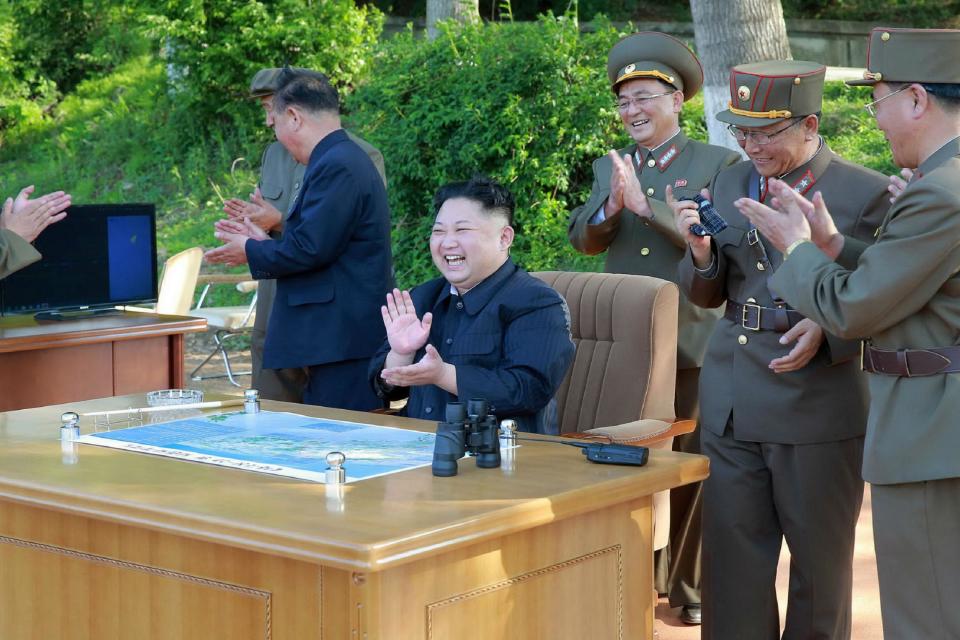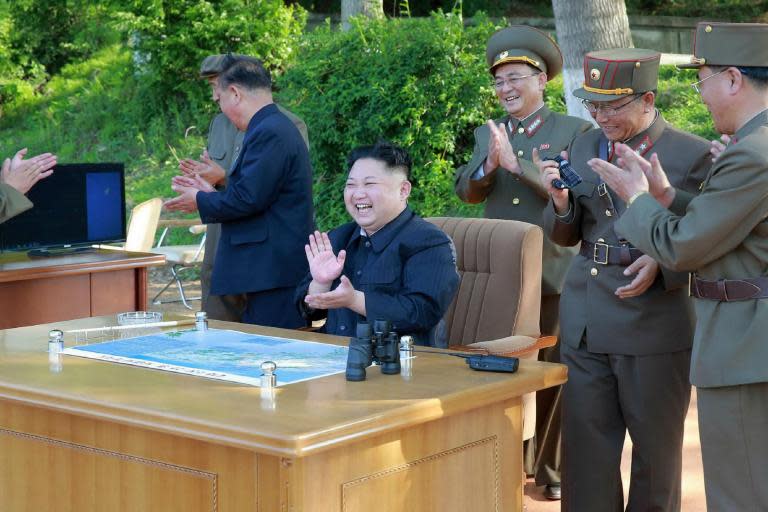North Korea nuclear missile strike on US mainland is 'inevitable', says Defence intelligence chief
The Defence Intelligence Agency chief has said it is "inevitable" that a nuclear weapon launched from North Korea would hit the US mainland.
Lieutenant General Vincent Stewart told the Senate Armed Services Committee that the possibility of an attack was very real after a recent nuclear missile test conducted by Pyongyang.
He warned that if the isolated country and its leader Kim Jong-un are left on the "current trajectory the regime will ultimately succeed."
However Mr Stewart said it was "nearly impossible to predict when" that would be.
He and Director of National Intelligence Dan Coates were pressed for a timeline repeatedly but refused to give a concrete answer out of fear that it may reveal what intelligence the US has been able to gather on Pyonyang.
"We do not have constant, consistent [intelligence and surveillance] capabilities and so there are gaps, and the North Koreans know about these," Mr Coates said.
Mr Coates also testified in the hearing that what makes North Korea a particularly "grave national security threat" is Mr Kim's "aggressive" leadership.
He seems determined to develop a nuclear missile capable of reach the west coast of the US, called an intercontinental ballistic missile (ICBM).
John Schilling is a missile expert and contributing writer on 38 North, a North Korea analysis website run by Johns Hopkins University. He told Al Jazeera that it would take Mr Kim at least until 2020 to develop a functional ICBM.
Concerns over a missile possibly hitting Hawaii resurfaced when Donald Trump sent an aircraft carrier fleet to the Sea of Japan, increasing tensions with North Korea after their last nuclear missile test.
The April test, which ultimately failed after just five seconds in the air, was accompanied by a large military parade in Pyongyang.
Mr Trump, according to a recently released transcript, called Mr Kim "a madman with nuclear weapons" in a phone call with Philippine President Rodrigo Duterte.
He also revealed to Mr Duterte that the Pentagon has sent two nuclear submarines to the region, but despite the US having "a lot of firepower, more than he has...we don't want to use it."
However, the president has expressed admiration for Mr Kim as well. In late April, he told CBS that: "At a very young age, [Mr Kim] was able to assume power. A lot of people, I'm sure, tried to take that power away, whether it was his uncle or anybody else. And he was able to do it. So obviously, he's a pretty smart cookie."
Mr Trump, though appearing reassured at the missile test failures, wants China to take a leading role on the issue.
In the wake of Mr Trump sending an aircraft carrier fleet to the area and installing a Terminal High Altitude Area Defence (THAAD) missile system in South Korea, China also put its bombers on high alert.
Seoul is within striking distance of North Korean weapons, but its newly-elected president Moon Jae-in is hoping his less hardline approach to their northern neighbours, which includes increasing economic cooperation, will improve relations and dissuade Mr Kim to launch any missiles.
Mr Trump said on the call with Mr Duterte that much of North Korea's goods are routed through China, which is why he wants them to take on responsibility for Mr Kim, but said "if China doesn't do it, we will do it."
The US, South Korea, and Japan continue to request the United Nations Security Council to meet and discuss North Korea, however Mr Kim continues to violate any resolutions the world body issues to stop him from further developing his country's nuclear arsenal.


